Transcript — Jan. 30, 2020
The Modernization of Chinese Culture in L.A.
In December of 2019, Life & Thyme hosted Over Tea, a spin-off of our morning panel series, Over Coffee. In conversation with filmmaker and writer Krista Simmons, we welcomed Top Chef winner Mei Lin, Chef and Co-Owner of Nightshade; Jon Yao, Chef and Owner of the Michelin-starred Kato; Sam Wang, Co-Owner of Chinatown’s modern tea house, Steep LA; and Andy Wang, a former real estate and travel editor at the New York Post and food journalist for Food & Wine. We discussed how the Chinese American experience has been shaped by the City of Angels, modernity and a new school of chefs.
Listen or read the transcript below.
Moderated by Krista Simmons
Photography by Antonio Diaz
Special thanks to our venue sponsor, Steep LA
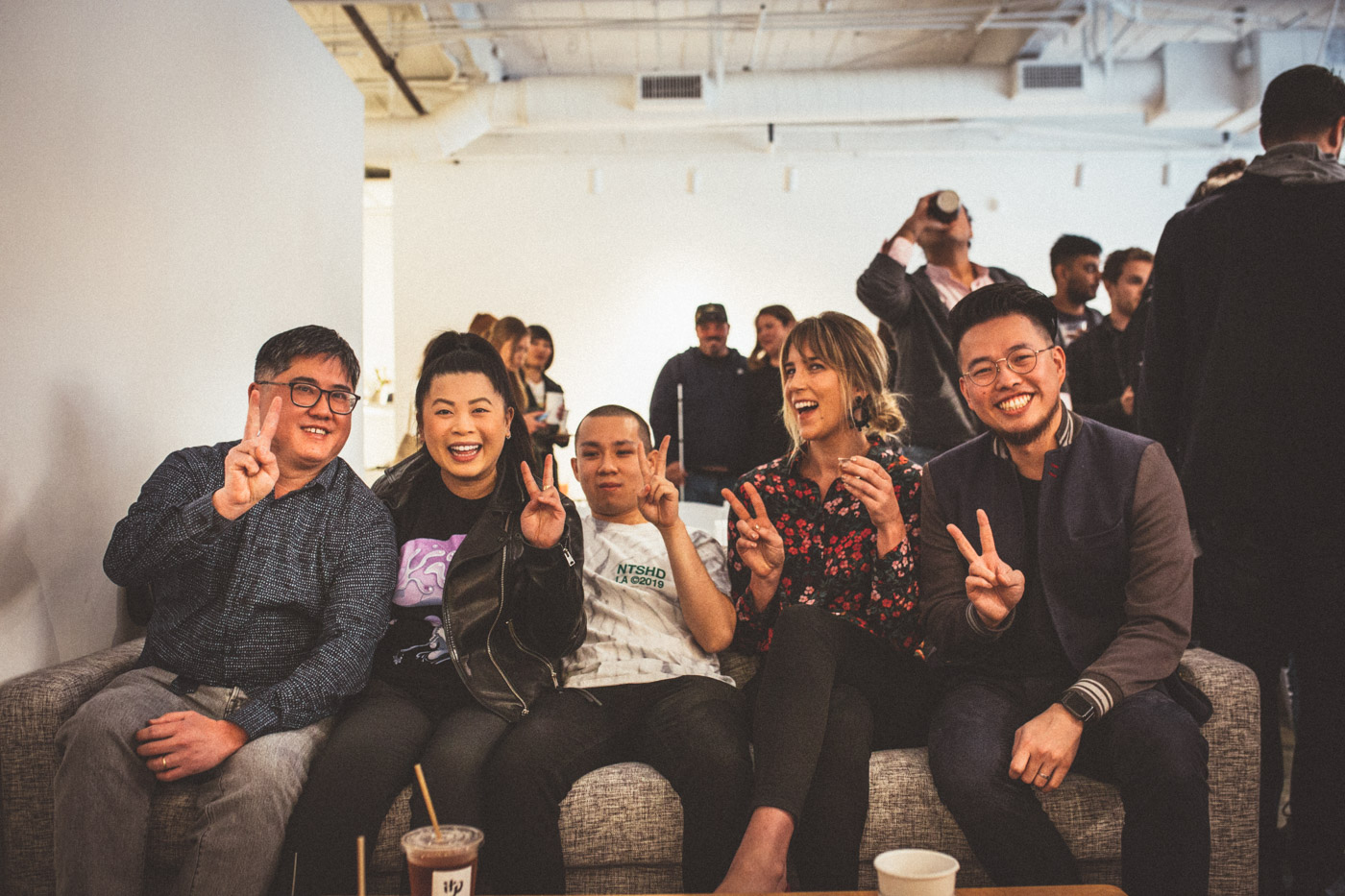
Listen (01:03:27)
The Topic
From Los Angeles’ revitalization of Chinatown wrestling with modernity to a changing Chinese cuisine helmed by a new school of chefs, the Chinese and Asian American community is evolving into a modern era of ideas and flavors, fueled by the L.A. identity.
The Transcript
Krista Simmons We’re sitting here in New Chinatown, which was established in 1938. It’s been here a long time and we’re seeing this revitalization. Sam, can you talk a little bit about why you chose Chinatown to open Steep and this old school versus new school mentality, and some of the issues this area is facing right now?
Sam Wang When we first had this idea, Lydia [my co-founder] and I had a few locations in mind. One of them was [San Gabriel Valley], where we’re both living at this moment. The other options were going to the Westside and serving a different market, and the third one was Chinatown. Location wise, it was central to all of L.A. and all of Westside, Downtown and SGV. Everybody can come here. Also, we understood what it meant for the Chinese Americans to come back to Chinatown.
Krista Simmons Who are your clientele?
Sam Wang We hadn’t really been back to Chinatown until we opened this space. And that’s the honest truth; there’s nothing for you to want to come back to. I think it’s hard for people to go in certain areas of L.A., because it’s so big.
Once we opened, we’ve had a lot of our customers, especially Chinese Americans, who have spoken to us and said, “I haven’t been back for twenty years.” And we hope more people will come back to Chinatown to visit different parts, even the old businesses because they’re really good. They have amazing food and we work with a ton of them, and we’re happy to see them thrive as people are starting to come back in.
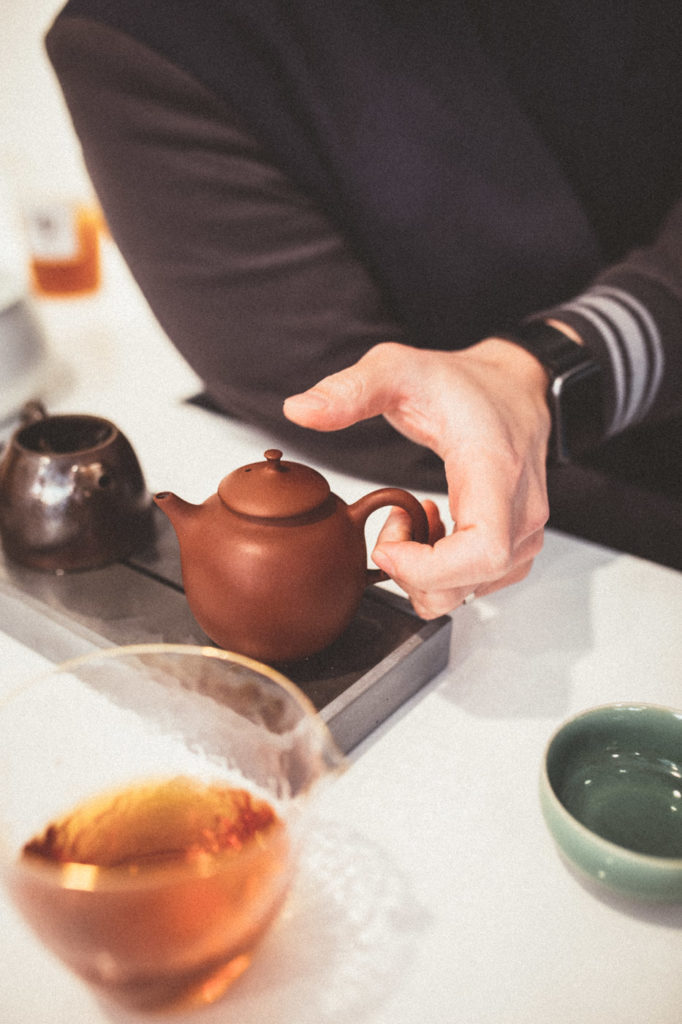
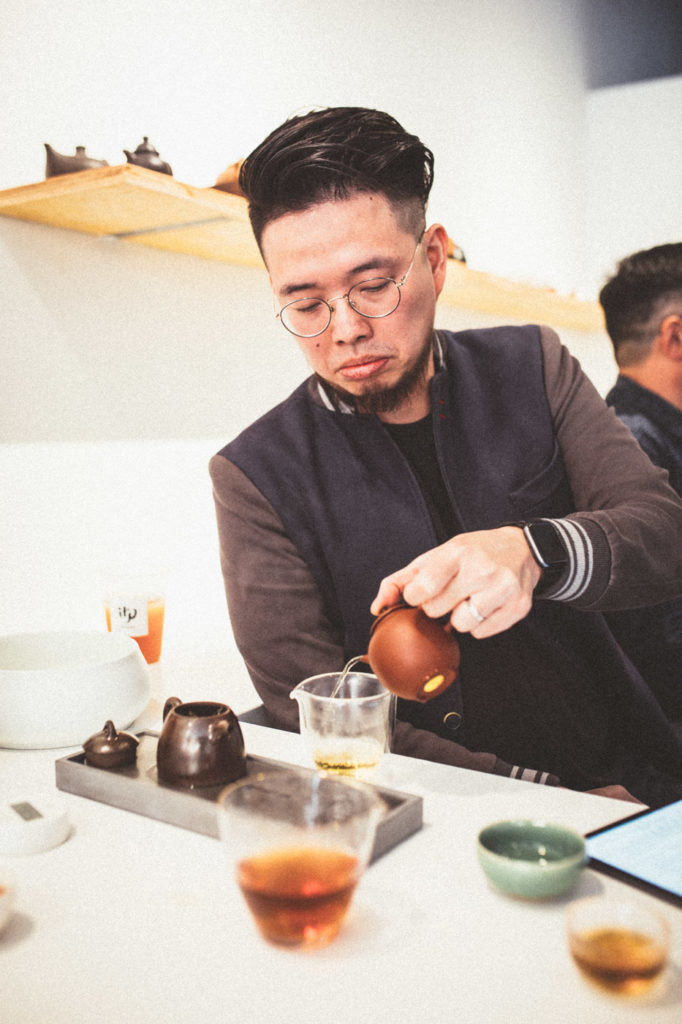
Krista Simmons We really do have these two distinct Chinatowns. There’s the one we’re in right now, and then there’s the mass that is the SGV, which is twenty different cities. It’s huge and so vast to navigate. Jon, you grew up there in Walnut. Can you talk a little bit about your experience growing up in the 626 and how that influenced your perspective and your narrative as a cook?
Jon Yao My high school was maybe like fifty percent Asian. I think it’s kind of weird, as opposed to the rest of the country. I never felt like an outlier being an Asian American. It was not celebrated, but it was like halfway between celebrated and tolerated. It was great though. It wasn’t just Chinese people; it was a huge mix. My upbringing in that area was not only Chinese or Taiwanese—there’s Japanese, there’s Vietnamese, there’s Thai, there’s a lot of Korean. I feel like just in San Gabriel Valley, it’s a melting pot in itself. And that kind of acceptance stretches into Los Angeles, which is such a great place to cook, eat and all that.
Krista Simmons It’s interesting to hear about that experience of this unified Asian Americanness.
Jon Yao Yeah, a lot of our dishes have a Vietnamese element, or maybe we sneak fish sauce in somewhere. And it’s not like we’re trying to be different. It just flows seamlessly; that’s kind of my upbringing. So I do say, “I’m Taiwanese,” but our cooking runs the whole spectrum.
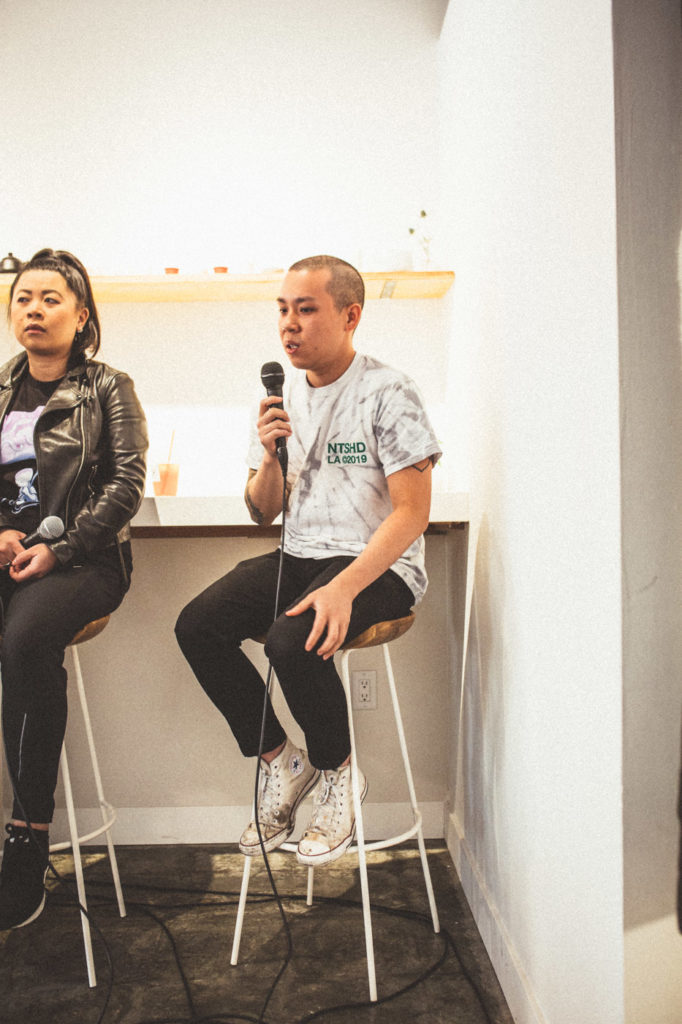
Krista Simmons It’s very Angeleno in that way. Mei, your menu is this really wonderful global experience that you go through. Can you talk a little bit about why you decided to go to this global perspective, rather than doing a modern translation of traditional Cantonese cuisine?
Mei Lin It’s more or less the things that I enjoy eating. I think L.A. loves bold flavors, so I tried to bring a lot of those types of flavors to the restaurant. More or less, it’s really just to feed the masses and to please people. I think that’s why we do the things we do.
Krista Simmons And as an Angeleno diner and Angeleno cook, we just eat differently; we cook differently. Andy, you cover that extensively. What makes the L.A. eater different than in New York, because you’ve lived in New York, you’ve lived around the country—what makes this dining landscape so unique and our diners so unique?
Andy Wang In L.A., everybody is just more intrepid. Sam and I were just talking about how years ago, L.A. seemed so vast and unknowable. Now that there are so many good things, people will wake up on a weekend, get in their car, and drive twenty-two miles somewhere else. In New York, Pete Wells writes a review of a Sri Lankan restaurant in Staten Island. There are fucking Sri Lankan people like in New York who are super proud of it, but they’re like, “Yo, I’m not getting on the fucking ferry.”
It’s just this thing where these things that are seemingly unknowable or knowable because of the internet. People get up and they go, and all these communities are super united, because it’s like the thing with SGV, as Jon said—it’s not just Chinese and Taiwanese. There’s a huge Mexican population in certain parts of SGV. There’s every subcategory of Asian person and group in SGV and it just blends. And sometimes you can’t tell the difference. It’s not so much that you’re Chinese American or Taiwanese American—you’re Asian American. And you see this all the time.
Krista Simmons Do you ever worry as cooks that things are modernizing too much and the authenticity is being diluted in some way?
Jon Yao Authenticity is such a weird word to say because just from me sharing my background with you, who are you to invalidate what I make by saying, “That’s not Taiwanese.” But those are things I grew up with; that’s how I grew up eating. Preserving culture isn’t just about keeping it in a glass box. It’s about doing something with it because even if it keeps your culture in the conversation, that’s a way of preservation too.
Krista Simmons Andy, you’ve covered this so much and it’s really interesting that we’re starting to see not just Cantonese cuisine, but regional Chinese cooking, which is really having a moment—especially Sichuan food. What do you think that interest is?
Andy Wang I’m going to say one controversial thing really. Sichuan food is maybe one of the maybe three or four foods that’s better in New York than it is in L.A. But this is the actual answer to the question.
[Laughter]
Krista Simmons Bombs have been dropped. Shots fired.
Andy Wang Everybody, relax for a second. It’s simply about migration patterns, right? Like good Sichuan food and a lot of cooking was in New York for decades before it came to L.A. because of the migration patterns. It’s become a thing in L.A. where it’s starting to blow up here. And I think it’s corresponded with a lot of social media, the youth culture, and the bolder flavors that everybody wants. Even Fuchsia Dunlop will say if you actually go to Chengdu now, it’s a bunch of young kids who want pyrotechnics. There are extra chilies, extra peppercorns; people are trying to figure out how to make smoke because they want to take Instagram videos. It’s more and more extreme.
In L.A., people have good palates, so you can’t just get away with doing that type of shit. When people from New York who’ve come and said the Sichuan food is so good here, the thing they’re responding to is this level of nuance and grace there wasn’t in New York, because in New York there wasn’t the market for that.
Krista Simmons Would you say we have the most diverse Chinese cooking or Chinese restaurants in L.A.?
Andy Wang Absolutely. I mean, it’s better than New York in like every other way.
[Laughter]
Andy Wang Vancouver has certain parts of the high-end on lock, but overall I think L.A. is better. I mean, Las Vegas is starting to get a very, very diverse group of Chinese entrepreneurs opening restaurants because the barrier to entry is so little there, compared to L.A.
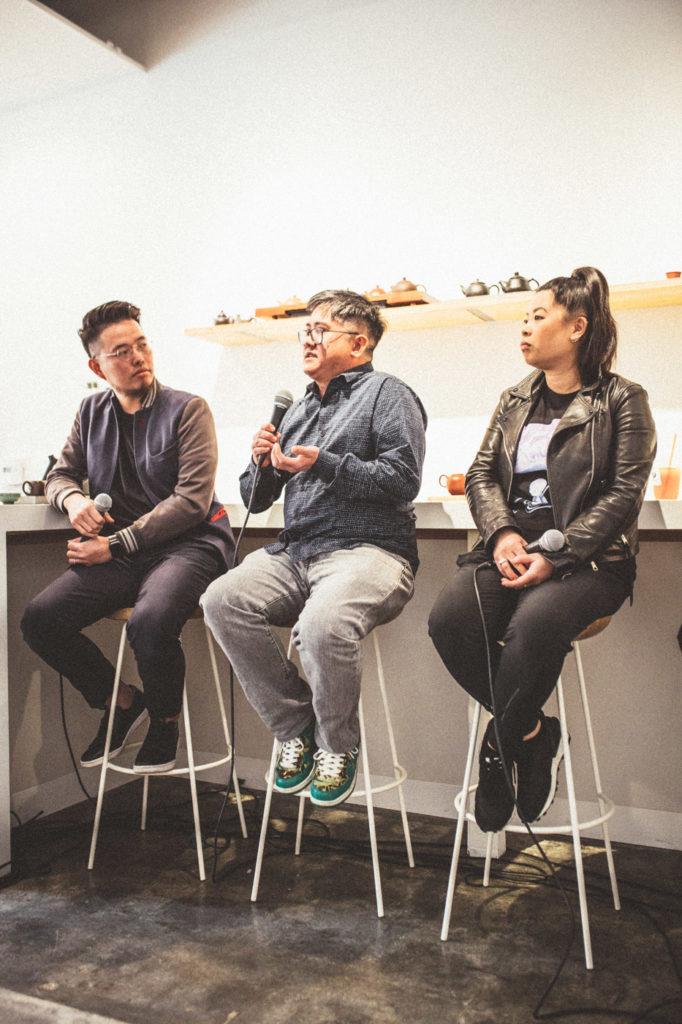
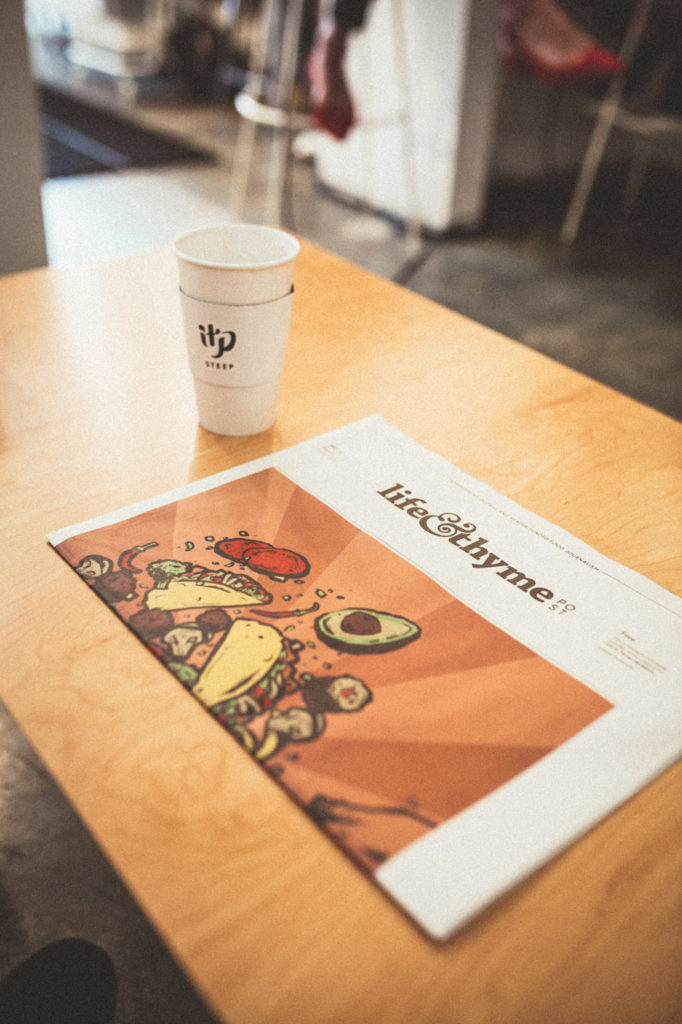
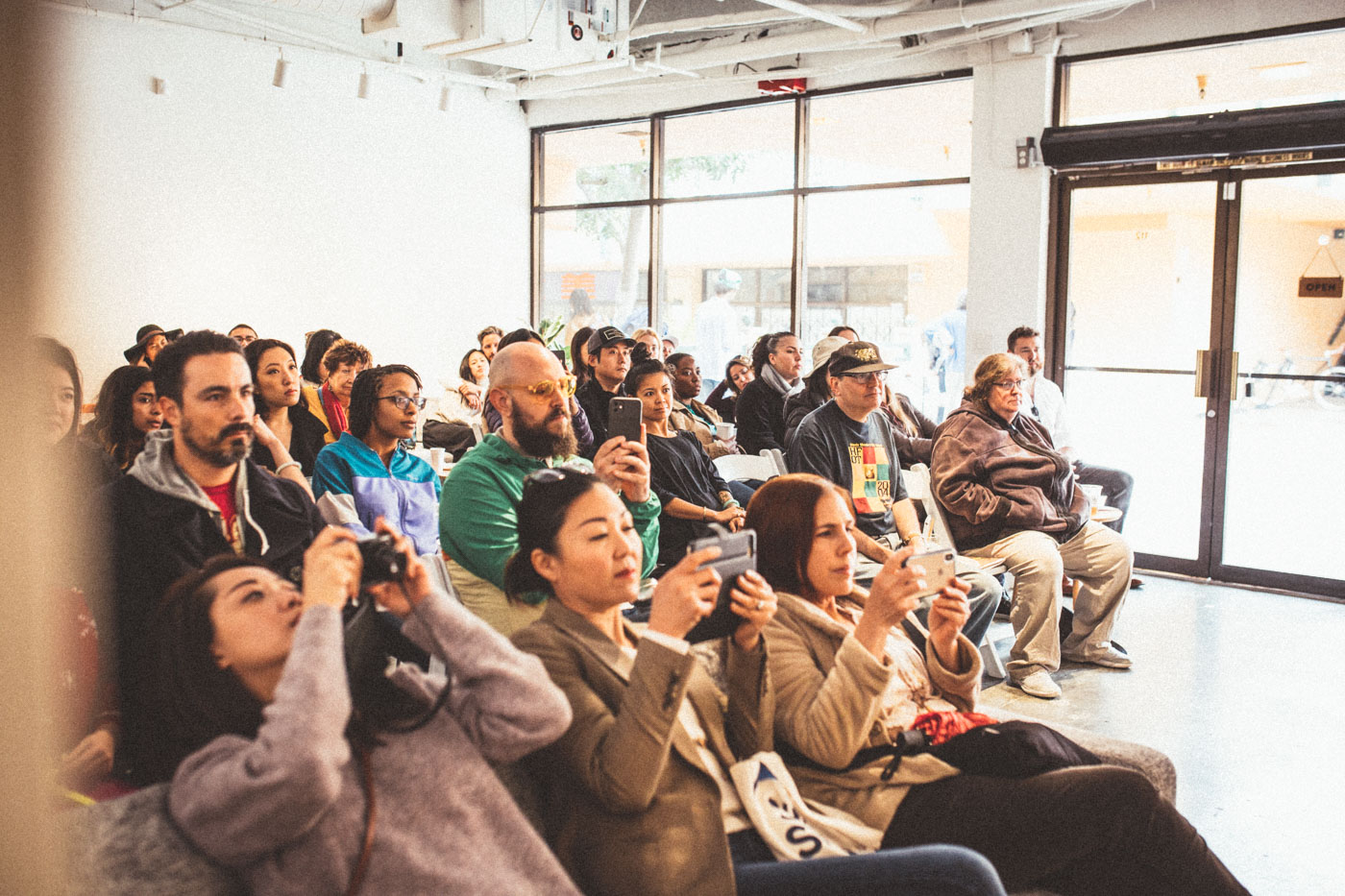
Krista Simmons Curiously, we seem like we’re having this moment where Chinese, Asian American food—people are just so interested in it. How do you feel about European chefs taking those ingredients or doing something inspired by or doing literal translations of Chinese American or Asian American food?
Sam Wang I think you have to understand that culture or understand that type of cooking first before you should really do it, but I could be wrong. I’m not a chef. I just do tea.
[Laughter]
Sam Wang In my eyes, I think it’s fine as long as they tell the correct story. If, for example, somebody’s lived in China for ten years and he comes back wanting to do this food, I can’t really stop him doing that. That’s his experience that he had in China or parts of Asia. If he wants to present that food in his own view, I don’t think there’s anything wrong with that.
Andy Wang I’m mostly with Sam on this. If the food you’re making is good and it’s respectful, and it comes from a place of knowledge, I feel like you should be allowed to cook it. I think it’s completely valid. I just feel like there’s an overcompensation with this culture, but I think most of the actual young Chinese chefs are not really worried that some three-Michelin-starred chef is going to go make a fucking dumpling tomorrow, you know?
[Laughter]
Jon Yao It’s inevitable that the lines blur for ingredients and techniques. There are less boundaries and borders now more than ever, as well as how information is passed through cooks. Food in maybe thirty years will look extremely different. You’re probably not going to go to a strictly Chinese restaurant.
Krista Simmons How do you utilize your menu to tell the stories of your culture?
Jon Yao Kato, for me, is a discovery of my heritage—just figuring out what kind of Chinese I am, how Taiwanese my parents are, and how Taiwanese my childhood was. A lot of times, our dishes are based on nostalgia or a story I have to tell. Every Chinese household has their version of steamed fish, but we obviously do ours differently, which is another reason why I don’t say authentic. Food is a great vehicle for me to share that story.
Krista Simmons For people who might be deep into navigating the SGV, what are your top two spots you would say, “If you’re going to get dim sum, you’ve got to go here”? And, “If you want your tea, you’ve got to go here.”
Jon Yao I really like Summer Rolls. It’s not Chinese; it’s Vietnamese. But every time I’m in that area I will go. And I really like Bistro Na’s too.
Andy Wang I always have a bag of dumplings from Mama Lu’s as backup in my house.
Krista Simmons What about here in Chinatown?
Sam Wang Pho 87 is really good. Blossom is good. General Lee’s is great for drinks. I’ve been to other places like Ord & Broadway; they’re pretty good, but I haven’t really tried a lot. Long’s Pastry, their pastries are good.
Krista Simmons What do you hope to see for the neighborhood as a whole?
Sam Wang I really want people to view it as an option. If you’re planning to do something, especially Chinese, Chinatown does have a lot of history. A lot of people have left, and I just want to see people come back. If people will at least give it a thought, I’ll be happy to see that. We can at least show them a little—I wouldn’t call it a blueprint, but at least a space like this. It’s doable in Chinatown, and people can see this as a way—at least look at it as a possibility, then I’ll be really happy because five years ago, nobody would even think about coming to Chinatown to open any sort of thing.
Audience Question Particularly for the chefs, do you guys ever go back to Asia for continuing education?
Mei Lin I try to go back every year. It doesn’t matter where, but I try to go somewhere in Asia. I’m actually going to Japan in January. Traveling is really important. I’ve traveled to most of the countries in Asia already and I get a lot of inspiration from all those different countries. From different things you eat, different things you see, just smells even. I really suggest traveling alone and wandering and getting lost. That’s how you get to see the world, and it’s actually pretty amazing.
Jon Yao Same for me. I try to go to Taiwan at least once a year. I’ll always go to restaurants just to see how they operate. And it’s always pretty eye opening, going to restaurants in Asia and seeing how they work.
Audience Question At the last Over Coffee, we talked about the current crisis in coffee—how climate change is affecting these farmers in Central America and the current economic market for coffee. For tea, through your research and how you’re sourcing, is there an instability with the market in Asia?
Sam Wang I would probably say contrary to coffee, the tea market is on its rise. People care about tea more. And because people care about tea more, there is more money going into tea. So the process and the production has gotten better. People spend more time trying to create ways to grow tea without pesticides, without any sort of artificial ingredients. And they’re trying to use the most traditional ways of oxidizing teas or fermenting teas.
I think when Lydia and I decided to do Steep, we were well aware of what the market was. I didn’t think there would be that many tea drinkers. We honestly thought we’d spend a lot more time educating and spending more time letting people know about how good our tea is.
Audience Question There’s been a lot of talk about how the markets influence your food. Is there ever the opposite when that happens, where you actually influence what the markets are providing and what ingredients you see more of in the markets?
Jon Yao That was the topic we discussed on the side—the perception of luxury. It’s different from place to place, and here we purposely use ingredients like abalone. We grow so much in California, but it’s always imported elsewhere. If we can raise that perception of what it is, maybe it changes and more people here actually consume it than just selling it elsewhere.
Mei Lin A lot of these luxury ingredients —lobster used to be prisoner food, or these little, tiny fish eggs all of a sudden cost hundreds of dollars a gram. It’s a lot about just exposing people to it and making it delicious.
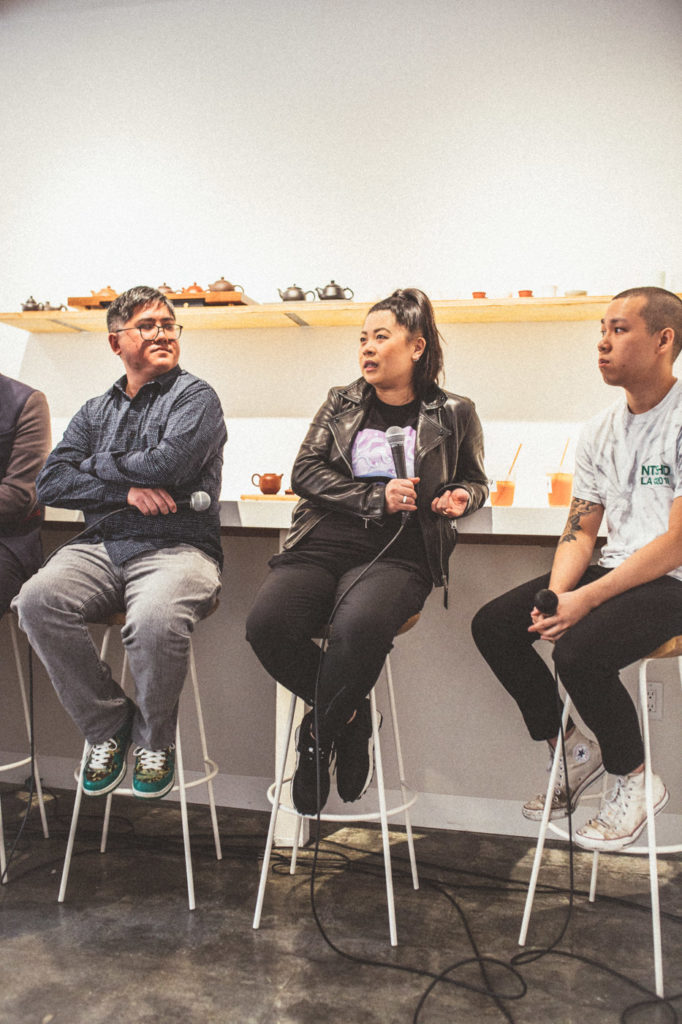
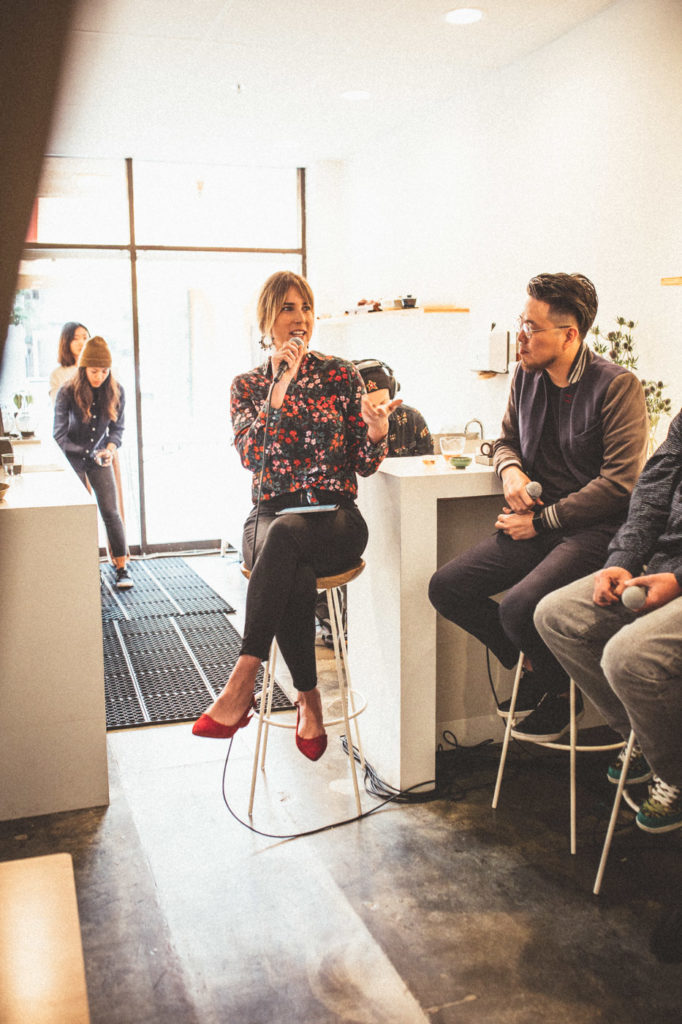

Audience Question Being ingrained in Asian American culinary pursuits, how do you all see what you all do for the culture of L.A. versus San Francisco or New York?
Andy Wang I’m not a cook, but I’ll try to speak for them. It really is about the blending. I lived in New York twice as long as I’ve lived in L.A., and I can count on one hand how many quote “Asian” friends I had. My phone is full of Asian people that I eat with all the time in L.A., just because people are supportive of each other. They go to each other’s communities. Just think about how we’re here in Chinatown. The people at LASA, who are a Filipino restaurant in Chinatown, are super supportive of Woon and vice versa. And Woon is a Chinese restaurant in Filipinotown.
Krista Simmons [Jon, you’ve] got this ambitious goal of creating a three-star Michelin Taiwanese American tasting menu. What do you think the biggest hurdle is going to be?
Jon Yao Price perception and luxury perception are definitely something I’m really scared about. I feel like Taiwanese and Chinese food always [have] this glass ceiling of like, not suppression, but people perceive it a certain way. How do we charge a certain price point? At what timeframe do we maybe raise it, and what ingredients we’re using? How can we tell a story and explain the scenario on a nightly basis and have people understand? But the positive thing is we’re doing it in L.A. where I think people are more tolerant and understanding, and open to these kinds of experiences.
Mei Lin We as chefs need to educate everybody a little bit more about the ingredients. Jon’s menu and my menu are predominantly seafood, and seafood is very expensive. It comes from Japan, it’s very expensive, and the markets change all the time.
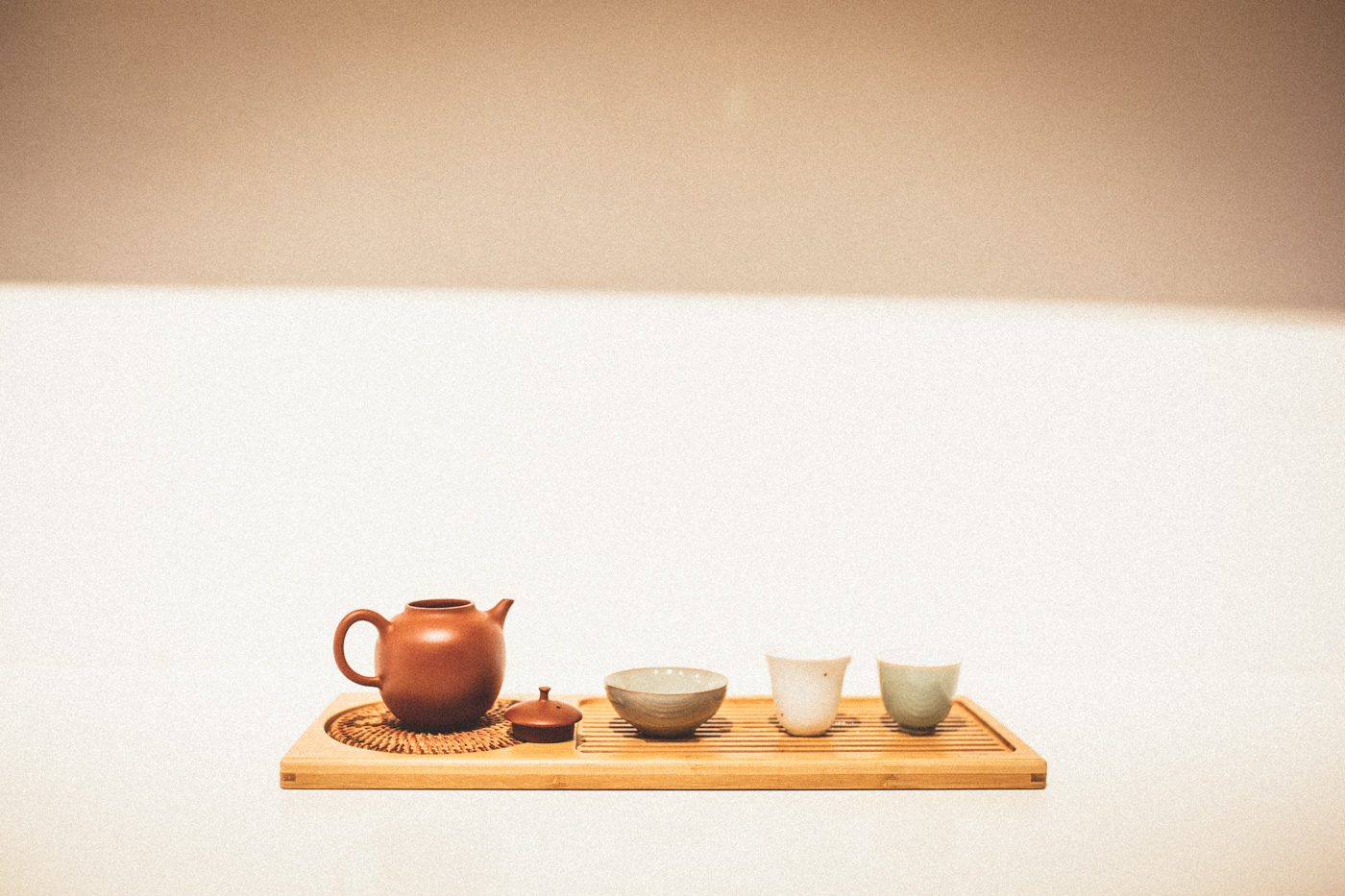
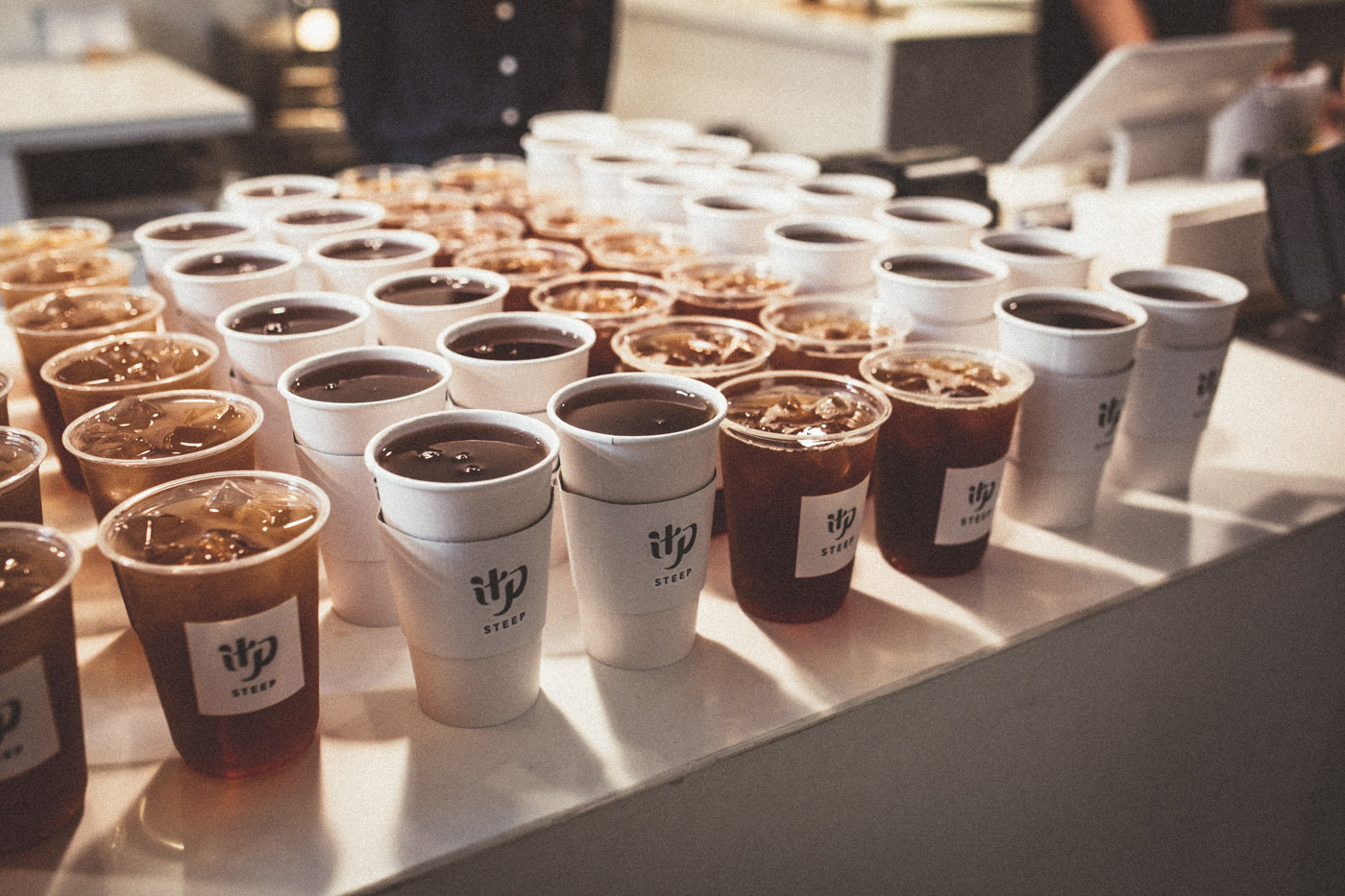
Audience Question Do you think authenticity is often used as a term to charge suppressed prices in Asian food?
Mei Lin It’s going back to where you source your ingredients. I source my ingredients from a certain farm that’s grass-fed versus commodity meat. That’s basically why a lot of these foods are cheaper.
Andy Wang It happens to Mexican chefs all the time too. The first episode of The Migrant Kitchen… I still remember a couple things that Wes [Avila of Guerilla Tacos] said, and one of them was, “It’s authentic to me. You have no right to say that it’s not authentic.” And the other thing with some of these dishes [that] Wes and other Mexican chefs are doing, for example, they could charge more money for it if they just took away the tortilla. “Here’s a fine-dining plate of uni.” But there’s this weird perception that a lot of Chinese food, Taiwanese comfort food, whatever, is comfort food, right? It’s messy. It’s gloppy. It’s #uglydelicious. There’s no nuance there. But the layers of flavors that are actually built, that shit is harder than a lot of fine-dining. I think everybody on this panel knows that.
Mei Lin I can say that what’s authentic to me may not be authentic to you. I’m a girl who was born in China, immigrated to Dearborn, Michigan, which is predominantly Arab American, the largest Muslim community outside of the Middle East. So I grew up eating a lot of Lebanese food, Middle Eastern food. So that’s also part of my upbringing as well. I obviously ate a lot of Cantonese food growing up. Having some Middle Eastern influences on my menu in a Chinese restaurant, as some people like to call us, that’s authentic to me.
Andy Wang It’s about being Asian American. I grew up in Texas, so there were probably certain things that [my mom] couldn’t buy or certain things she didn’t want to buy. This is the version she made when she’s in a hurry to feed her family. That’s the story a lot of chefs end up telling me a similar version of.
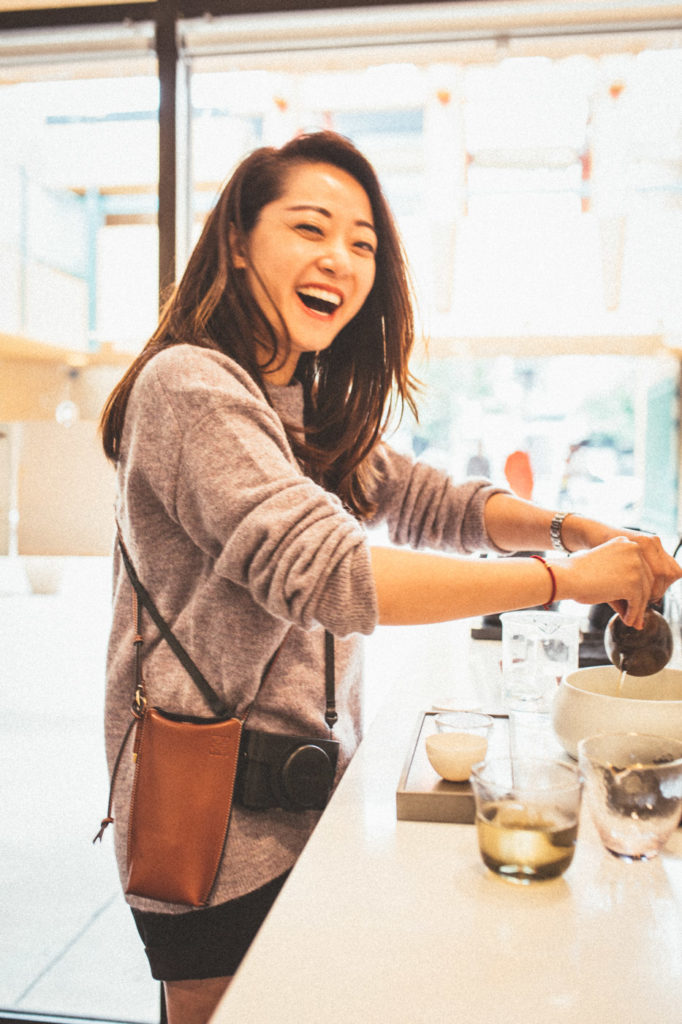
Audience Question Would you say there are stigmas attached to the challenges you’re facing? Do you think a lot of it has to do with a generational shift?
Jon Yao Generation gaps are always a shift in thinking, but you can’t just look forward to that gap. You still have to operate during this time.
Andy Wang The perception has changed, but if you look at media coverage, you’re talking about Hong Kong; there’s probably been dozens and dozens of stories. “This is the cheapest Michelin star meal in the world,” right? Or there’s the Thai omelet that then became the cheapest Michelin star in the world. There are so many fucking three-star restaurants in Asia, right? In Hong Kong, there’s a three-star dim sum restaurant at a Four Seasons where it costs more money than to eat at some Hayato, if you order the tasting menu. That exists, but it doesn’t get all like these aggregated headlines like, “Hey, you can go eat Michelin star food for $4,” and that’s what people tend to associate Asia with. Even though the higher end stuff actually outnumbers that stuff.
The other thing is that I go to a restaurant like Bone Kettle most of the time. When I’m there, I tend to see Asian families that are multi-generational. And half the time, you can see the grandparent is really pissed off that they’re at this modern Asian fusion restaurant or whatever the fuck they think it is. But I’ve noticed all the times I’ve been to Majordomo, there’s been a big Korean family, and there’s been somebody over fifty years old, and they’re sitting there like, “I understand why this is a big deal. And this is special, and this is different.” It’s the same thing with my parents.
This transcript was edited for clarity and length.






Our comments section is for members only.
Join today to gain exclusive access.